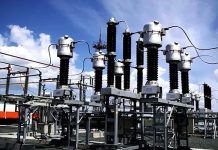NEPZA Enforces 10-Year Ban on Strikes, Lockouts at Dangote Refinery and Other Free Zones
The Nigeria Export Processing Zones Authority (NEPZA) has reaffirmed that all enterprises operating within the nation’s Free Trade Zones including the Dangote Refinery are legally barred from industrial strikes and lockouts for a period of 10 years from the start of their operations.
The Authority’s Managing Director, Dr. Olufemi Ogunyemi, made this clear in Abuja on Thursday while reacting to the recent labour unrest involving the Petroleum and Natural Gas Senior Staff Association of Nigeria (PENGASSAN) and the management of Dangote Refinery.
The statement follows last week’s shutdown of critical oil and gas facilities by PENGASSAN over allegations that Dangote Refinery had dismissed 800 workers for joining the union.
However, the refinery management denied the figure, insisting it only disengaged a few workers who were allegedly sabotaging operations during an ongoing reorganisation exercise.
Dr. Ogunyemi described the incident as “worrisome,” noting that the escalation of the trade dispute violated the NEPZA Act since the refinery operates within a Free Trade Zone (FTZ) and is therefore under NEPZA’s exclusive regulatory oversight.
Citing Section 18(5) of the NEPZA Act, he explained that: “There shall be no strikes or lockouts for a period of ten years following the commencement of operations within a Zone, and the Authority shall resolve any trade dispute arising within a Zone.”
He clarified that while employees within the Free Zones are free to form or join unions and engage in collective bargaining, any resulting industrial dispute must be channeled through NEPZA for resolution not through external intervention.
“The Free Trade Zone scheme in Nigeria is over 30 years old. By now, we should be fully conversant with its operational model and the global standards guiding its function as a catalyst for industrialisation and investment,” Ogunyemi said.
He added that Dangote Refinery, being a declared Free Zone enterprise, benefits from tax incentives and customs waivers under NEPZA’s regulatory supervision.
Dr. Ogunyemi emphasized that Section 24(1) of the Act limits the influence of external laws, such as the Trade Unions Act (TUA) or Trade Disputes Act (TDA), within the zones. In cases of conflict, the NEPZA Act takes precedence.
“Consequently, in any conflict between the TUA or TDA and Section 18(5), the latter prevails as the more specific regulation governing Free Zones,” he stated.
The NEPZA boss commended President Bola Ahmed Tinubu for his swift intervention in de-escalating the crisis, describing it as a demonstration of leadership and commitment to protecting national assets.
“Labour disputes are part of the journey toward industrialisation,” Ogunyemi said. “It is a mark of President Tinubu’s maturing democracy that this matter was resolved quickly without harming the economy.”




























